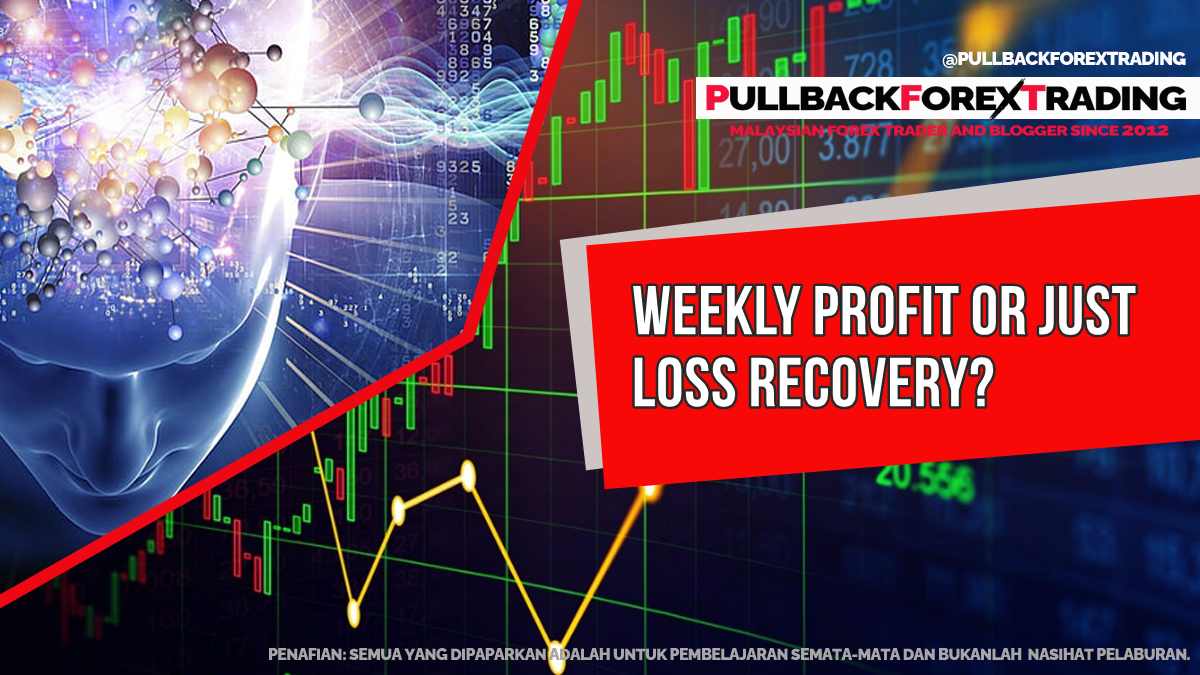
Weekly Profit or Just Loss Recovery? Identify the Real Reasons You’re Not Growing as a Trader
Every week, the forex market opens the door to opportunity. Many traders begin with solid setups and even make early profits — only to find themselves by Friday struggling just to break even or, worse, digging out of losses. What happened?
It’s not that the market suddenly turned against them. It’s that somewhere along the line, their decisions went off course. And to grow as a trader, we must identify the hidden sources of these poor decisions and stop letting profits turn into recovery missions.
1. The Profit That Vanished
You started strong. Maybe Monday or Tuesday gave you one or two winning trades. But by mid-week, things changed. You took trades outside your plan, chased a move you missed, or entered during low-volume hours.
The result? The early profits disappeared, and you ended the week exhausted — emotionally and financially. This is the trader’s trap: turning income potential into damage control.
These scenarios are more common than most traders admit. What begins as a confident week often ends in frustration — not because the market changed, but because the trader did.
2. The Real Sources of Poor Decision-Making
Before we can improve, we need to identify the root causes of bad trading decisions. Here are some of the most common:
a. Lack of a Clear Trading Plan
Without a strict set of rules for entry, exit, and risk, emotions take over. Spontaneous decisions replace structured ones. You become reactive instead of strategic.
b. Overconfidence After Small Wins
A few quick wins early in the week can create a false sense of invincibility, leading to oversized positions or careless trades. Confidence is good, but overconfidence is dangerous.
c. Revenge Trading and FOMO
Missed a good setup? Took a loss? Now you’re jumping back in to “get it back.” These decisions are emotionally driven, not logic-based. This behavior often spirals into deeper losses.
d. No Journal or Self-Review
Without tracking your trades and behaviors, you won’t recognize patterns in your mistakes. Journaling allows you to reflect and improve. What doesn’t get measured doesn’t get fixed.
e. Social Media and Trading Noise
Following signals from Telegram groups, influencers, or random hype online often overrides your own analysis and discipline. Trading by herd mentality disconnects you from your strategy.
f. Impatience and the Need to Always Be in a Trade
Some traders equate activity with productivity. But constantly being in trades doesn’t mean you’re progressing — it often means you’re exposing yourself to unnecessary risk.
3. The Cost: Profits Become Recovery Missions
This is the harsh truth: every time you abandon your plan, your winning trades are at risk. What started as a profitable week quickly turns into a mission just to recover losses — mentally trying, emotionally draining, and financially unsustainable.
The goal was to grow your account, but now the week ends in stress, self-doubt, and frustration. You’re no longer trading with a clear head — you’re reacting, just trying to get back what was lost.
When this becomes a repeated pattern, it affects your long-term trading mindset. You begin to fear the markets. Confidence erodes. This is how traders burn out.
4. How to Break the Cycle
Escaping this trap requires awareness, discipline, and a change in mindset. Here are the key steps:
a. Trade Less, Wait More
Focus only on high-quality (A+) setups. Let the market come to you. Sitting on your hands is often the most profitable position.
b. Follow a Weekly Plan
Before the week begins, define your trading goals, risk limits, and trade criteria. Stick to this plan religiously. If it’s not part of the plan, don’t take the trade.
c. Document Everything
Keep a trading journal. Write down your entries, exits, and — most importantly — your reasons. Include how you felt before and after each trade. This is how you learn from yourself.
d. Accept Missed Opportunities
Let them go. There will always be another setup. Trading is not about catching every move — it’s about catching the right moves.
e. Learn to Stop After Profit
Don’t feel forced to keep trading once you’re in profit. If your goal is hit, walk away. Protecting profit is more important than chasing more.
f. Limit Exposure to External Influence
Unfollow noisy channels and unreliable signal groups. Trust your strategy. Learn to think independently.
5. Final Thoughts: Be the Trader Who Keeps the Profit
The forex market gives opportunities every week — but only disciplined traders keep them. The market rewards preparation, patience, and precision. Emotional decisions, on the other hand, destroy progress.
Stop letting your profits turn into loss recovery missions. Protect your edge. Respect your plan. Trade like a business, not a game.
Your goal is not just to trade — it’s to grow. Slowly, steadily, and consistently.
Trade smart. Trade calm. Trade with purpose.
ADMIN
26/05/25




